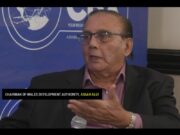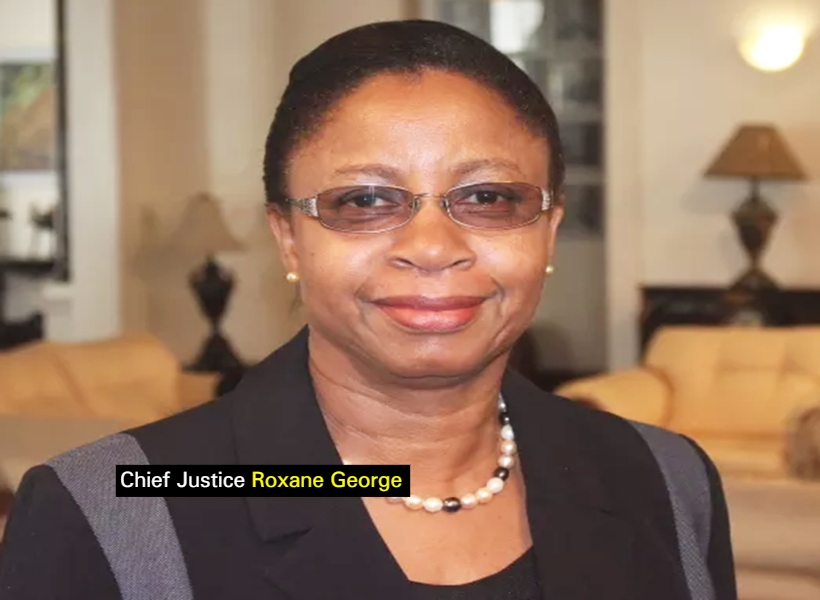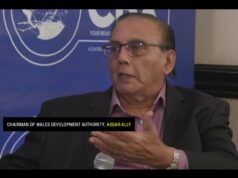By Feona Morrison
The Full Court has quashed a decision by Justice Franklin Holder in which he ruled that the High Court has jurisdiction to hear an application filed by APNU+AFC Candidate Ulita Moore, in which she asked the court to inquire into the constitutionality of a decision made by GECOM to have a high level CARICOM team supervise a national recount of the votes cast in the March 2 elections.
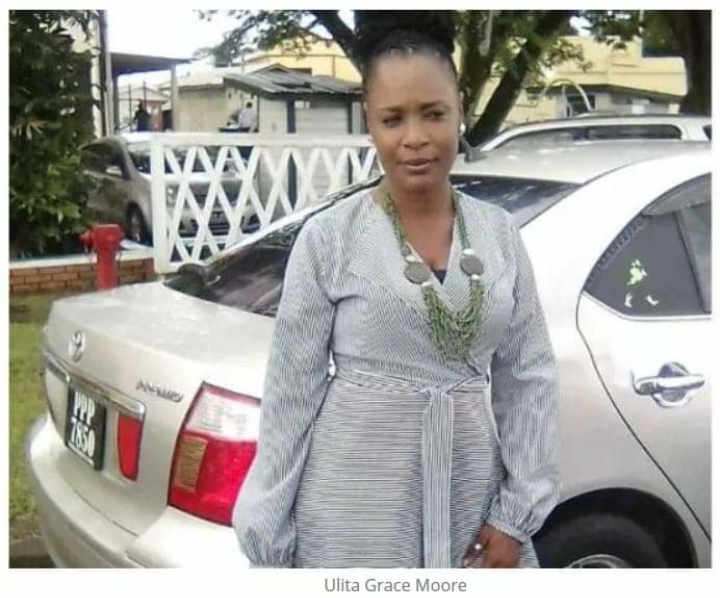
In light of the foregoing, the Full Court discharged the interim injunction granted by Justice Holder which blocked the recount and dismissed the application filed by Moore.
The Full Court comprising Chief Justice Roxane George and Justice Nareshwar Harnanan held that the issues raised in Moore’s case have to be ventilated via an election petition pursuant to the Elections Law (Amendment Act) No. 15 of 200. The Chief Justice, in delivering the ruling said that Moore’s application raised questions as it relates to the functions of GECOM and its members and whether they were performed validly.
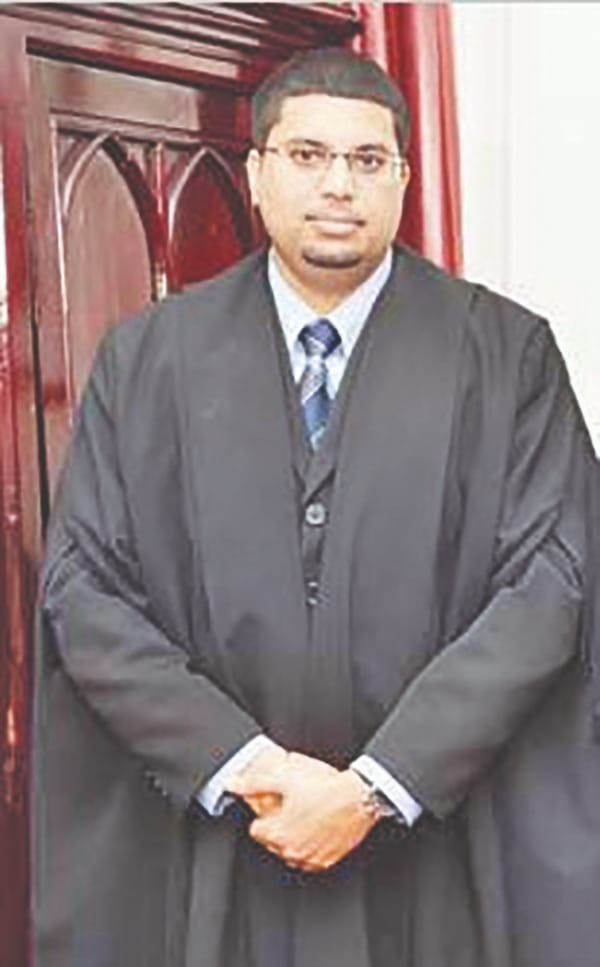
Justice George, inter alia, held that pursuant to Section 140 of the Representation of the People Act, no question whether any function of the Elections Commission or of any of its members has been performed validly or at all shall be enquired into in any court. The Chief Justice explained that any meeting held by GECOM or its commissioners as a whole would fall under the above mentioned provision, and the court is only allowed to intervene and exercise supervisory powers by way of an elections petition.
Section 140 of the Representation of the People Act read: (1)Except to the extent that jurisdiction in that behalf has been conferred, and the exercise thereof is required, by the Constitution or any law made under article 3 thereof (which provides for the determination by the Supreme Court of Judicature of questions as to membership of the National Assembly and elections thereto) and save as hereinbefore provided to the contrary, no question whether any function of the Elections Commission or of any of its members has been performed validly or at all shall be enquired into in any court.”
It further states: (2) No evidence of any deliberations of the Elections Commission or communications between members of the Commission regarding its business shall be admissible in any court.
Justice George held that Article 162(1) (b) of the Constitution of Guyana gives GECOM wide powers to ensure the necessary actions are taken to ensure credible elections. The Chief Justice added that Section 22 of the Elections law Amendment Act No. 15 of 2000 operationalizes these powers. In this regard, Justice George noted it is not the jurisdiction of the High Court to intervene in the operations of GECOM. To do so, she stressed, would be to over reach or trespass in the functions of GECOM.
Article 162(1) (b) of the Constitution reads that GECOM, “shall issue such instructions and take such action as appear to if necessary and expedient to ensure impartiality, fairness and compliance with the provisions of this Constitution or of any Act of Parliament on the part of persons exercising powers or performing duties connected with or relating to the matters aforesaid.”
Lawyers for Leader of the Opposition Bharrat Jagdeo, Trinidad-based Senior Counsel Douglas Mendes and Anil Nandlall had maintained that Justice Holder erred in law in arriving at that decision. They both agreed that Justice Holder has no jurisdiction to hear the application filed by APNU+AFC Candidate, Ulita Moore, as it questions decisions made by GECOM under Section 140 of the Representation of the People Act.
According to them, the decisions made under the aforesaid provisions are “precluded from inquiry by any court.”
Nandlall had previously explained, “So you have a jurisdictional bar created by the Representation of the People Act against a court inquiring into decisions made by GECOM. And Ulita Moore’s entire case rests upon asking the court to overrule decisions made by GECOM and to inquire into how those decisions were made and those things cannot be inquired into according to the Representation of the People Act.”
Moore had asked the court for a declaration that the decision by GECOM to have a high-level team from the CARICOM to supervise the recount is in contravention of the Constitution and the Representation of the People Act, has already secured an interim injunction blocking the recount. Apart from that, Moore was also seeking an order prohibiting GECOM from conducting what she says is an unlawful recount of the votes, and to have the already declared results, for the 10 electoral districts be made final.
At the time Moore secured the interim injunction, GECOM said it was examining the legal ramifications of an agreement between the incumbent President and Jagdeo for CARICOM to oversee the recount of all ballots for the 10 electoral districts. GECOM reported that it was already in receipt of a copy of the Aide Memoire that was signed by incumbent President David Granger and Jagdeo and witnessed by CARICOM’s Secretary General, Irwin Larocque to facilitate the recount. GECOM was also in the process of having an order gazetted to that effect.
The high-level CARICOM team sent here to supervise the recount has since packed up and left.
Moore’s lawyers include: Senior Counsel Roysdale Forde; Senior Counsel John Jeremie, former Attorney General of Trinidad and Tobago and several juniors and Queen’s Counsel Dr. Francis Alexis, former Attorney General of Grenada.
Meanwhile, in her affidavit in response to Moore’s case, GECOM’s Chairperson Retired Judge Claudette Singh reaffirmed her commitment to the national recount. As a matter of fact, Justice Singh has insisted that GECOM is constitutionally empowered to order such a process. To support her argument, the retired judge, among other things, relied on Article 162(1) (b) of the Constitution.
“The CARICOM [team] was simply the mechanism used to give effect to the recount. The order prepared by GECOM [for the recount] itself provided the reason for the necessity of the intervention by the Commission. It shows clearly that the CARICOM team was just the mechanism to assist in providing credible elections results to the nation,” Justice Singh submitted in her affidavit.
Against this backdrop, Justice Singh asked the court to dismiss Moore’s application and that GECOM be permitted to execute its constitutional functions with or without the CARICOM agreement.


